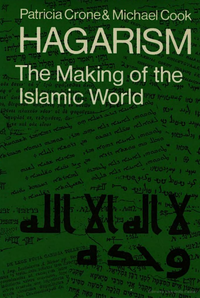Here is a selection of views on the Qur'an, all of them academic. The first is from Maxime Rodinson's study of Muhammad. Rodinson was a French Marxist and therefore it is unsurprising that his book is very far from being hagiographical in nature. I have always found this passage interesting because it demonstrates that scepticism about the divine nature of the Qur'an did not begin with, say, Hitchens and Dawkins:
" ...there has been no lack of independent spirits in Islam to shed doubt on the incomparable nature of the Koranic text. Some have actually set out to write imitations of the Koran.One of these, in medieval times, faced with the objection that his text did not produce the same mesmeric effect as recitations of the Koran, retorted: 'Have it read out in the mosques for centuries and then you will see! '
Here in fact is the heart of the matter. A text on which one has been brought up from infancy and heard recited with great fervour in the most solemn and moving circumstances, which one has studied word for word so that it has become almost a part of oneself, sets up, after a time, a special kind of reaction. It becomes quite impossible to hear it with a fresh ear or look at it with a fresh eye so as to see exactly how it would appear to us if the bare text, free of all associations, were to be put before us for the first time without warning. For Catholics, it is the same with certain scriptural passages and Latin hymns used in the liturgy, and for Protestants with the Bible as a whole. It is not surprising that so many Muslims should be convinced of the inimitable perfection of the Koranic text and amazed and indignant that anyone could doubt it. Nor is it in any way surprising that outsiders, confronted for the first time with the texts in question, should often see in them nothing which appears to them to justify the admiration of those who were brought up on them.
And so the beauty of the Koran has been hotly contested by those who for one reason or another failed to fall under the collective spell. In medieval times a number of free-thinking Muslims wrote books entitled mu'ararjat al-qur 'an, which can be roughly translated as the Anti-Koran. The apologists felt bound to refute them and, especially on a literary level, to produce a painstaking defence of the style and images of the Koran, point by point and word by word. In our own day the great German semitic scholar Theodor Noldeke, a learned student of Arabic, has written at length about the stylistic defects of the Koran."
Another intriguing theory about how the text evolved is the now debunked Hagarism thesis, advanced by Michael Cook and Patricia Crone. It can be read about here:

en.wikipedia.org
More recently, Nicolai Sinai (a non-Muslim historian) has authored an excellent book called
The Qur'an: A Historical Critical Introduction. It's a highly technical work but in a nutshell, Sinai argues that Islam initially began as a movement predicated on the threat of divine punishment for those Meccans who continued to practise polytheism. When that divine act of retribution failed to materialize and the early Muslims became established in Medina, they themselves
became the punishment.
Should just add that I am neither a Muslim nor a Christian and do not have an iron in the fire when it comes to either the historicity of Jesus or Muhammad. However, for what it is worth, I am inclined to think of both of them as having existed.
Haven't got around to it yet but Maurice Casey (an independent, non-Christian historian) ignited a very acrimonious online discussion about whether Jesus existed or not by his trenchant view that he did and subsequently wrote a book called
Jesus: Evidence and Argument or Mythicist Myths?
That's where I would start if I wanted to delve more deeply into that issue.
Hope this helps.


